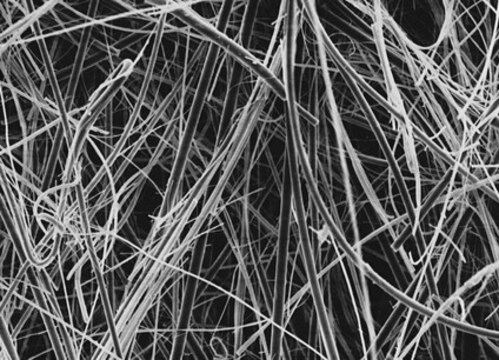APFD09050
Glass Fiber Membrane Filter, 2.7 μm Pore Size
Millipore, filter diam. 90 mm, hydrophilic
Synonim(y):
Glass Fiber Filter without binder
Zaloguj sięWyświetlanie cen organizacyjnych i kontraktowych
About This Item
Kod UNSPSC:
40161507
eCl@ss:
32031602
NACRES:
NB.24
Polecane produkty
Materiały
glass fiber membrane
plain filter
white filter
opis
2.7 µm pore size, hydrophilic glass fiber, 90 mm diameter
sterylność
non-sterile
Właściwości
hydrophilic
producent / nazwa handlowa
Millipore
Parametry
2.7 mL/min-cm2 water flow rate
500 °C max. temp.
śr. filtra
90 mm
grubość
470 μm
substancje ekstrahujące się grawimetrycznie
300%
wielkość porów
2.7 μm pore size
90 % porosity
Warunki transportu
ambient
Opis ogólny
Glass Fiber Filter without binder are stable and retain structural integrity at 500 °C. It is useful in gravimetric analysis and filtration of hot gases.
Zastosowanie
- Clarifying suspensions containing particulates >1.0 µm
- Microplastics analysis grade water
Cechy i korzyści
- Thick filter with low retention and high flow.
- Applicable for clarifying suspensions with particulates greater than 1.0 μm.
Ta strona może zawierać tekst przetłumaczony maszynowo.
Certyfikaty analizy (CoA)
Poszukaj Certyfikaty analizy (CoA), wpisując numer partii/serii produktów. Numery serii i partii można znaleźć na etykiecie produktu po słowach „seria” lub „partia”.
Masz już ten produkt?
Dokumenty związane z niedawno zakupionymi produktami zostały zamieszczone w Bibliotece dokumentów.
Jennifer M Davidson et al.
Phytopathology, 101(4), 492-501 (2011-03-12)
The transmission ecology of Phytophthora ramorum from bay laurel (Umbellularia californica) leaves was compared between mixed-evergreen and redwood forest types throughout winter and summer disease cycles in central, coastal California. In a preliminary multisite study, we found that abscission rates
Nasz zespół naukowców ma doświadczenie we wszystkich obszarach badań, w tym w naukach przyrodniczych, materiałoznawstwie, syntezie chemicznej, chromatografii, analityce i wielu innych dziedzinach.
Skontaktuj się z zespołem ds. pomocy technicznej


